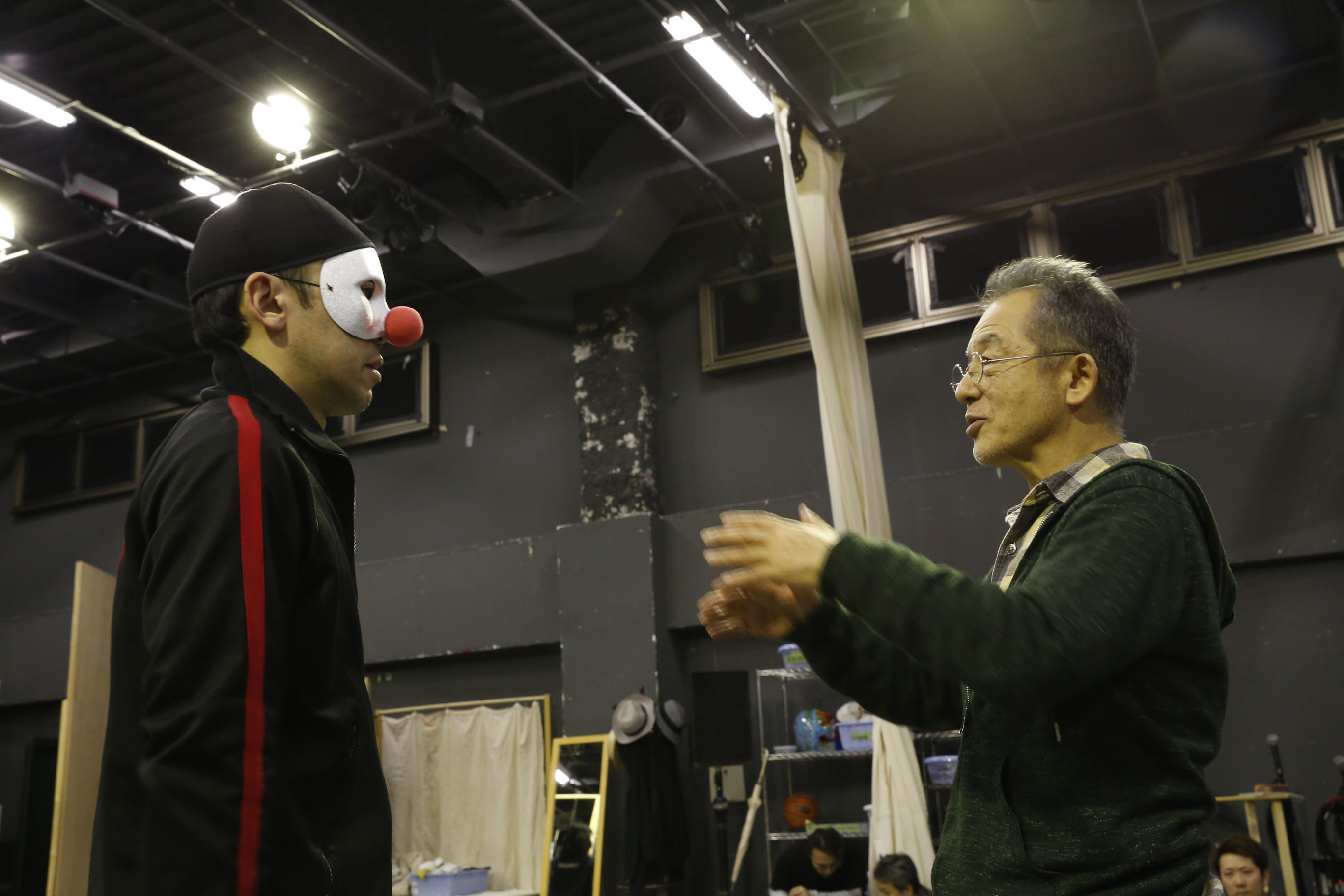"Young people these days won't be too familiar with the term the Roaring Twenties, but the 1920s still hold interest as a period. It was a time of changing values, not only in the United States, but in Europe: Dadaism, Cubism, Expressionism and other non-mainstream arts were blossoming. All over the world, people were looking to find new things."
That was how the writer and director Kazuyoshi Kushida explained why he set his play "Motto Naite-yo Furappa" ("Cry Some More For Me, Flapper") — in which he's now also performing — in "an imaginary '20s-era Chicago." In this case, however, "imaginary" may be the more illuminating adjective, since in his research Kushida, 71, says "he found himself strongly drawn" to a crime-history book by a Japanese detective who had already retired in the 1920s and who wrote in an old literary style about a Chicago he never visited and gangs whose exploits he largely conjured up himself.
"What kind of city is Chicago? If you want to know nowadays, you can look it up on the Internet. But back then, information had to be shipped across the sea in a boat," the playwright points out, adding: "With that lack of knowledge due to the distance, misunderstandings came easily. It was so funny to read this former detective's imagination-fueled stories. People hate it when their country is misunderstood by outsiders, but I rather thought I'd play with that idea in my work."

















With your current subscription plan you can comment on stories. However, before writing your first comment, please create a display name in the Profile section of your subscriber account page.